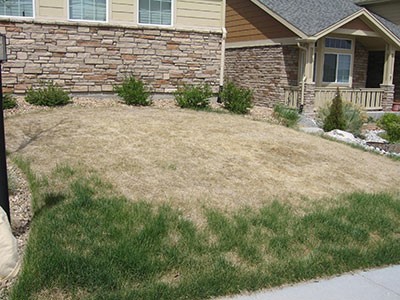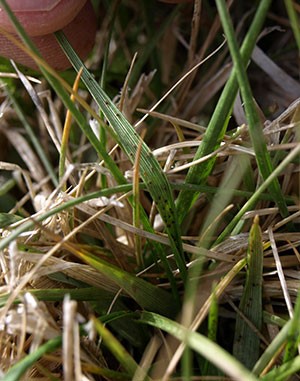Turf Mite Damage
- 2020-01-07
- By danibash
- Posted in The Garden Buzz
By Judy Cale, Colorado Master Gardener
What is a mite and what can it damage? A mite is a tiny spider. Here in Colorado, we have three common turf mites—banks grass mites, clover mites and brown wheat mites—and they can damage lawns by sucking moisture from turf blades and turning them brown. They are tinier than a pinhead, which makes them difficult to detect.

Why is there an article about spider mites in January? Clover mite and brown wheat mite damage most likely occurs from February to May if there is little natural moisture or if lawns do not receive winter watering. Banks grass mite damage usually takes place in the summer. Spider mite damage may have occurred if most of the turfgrass turns green in the spring, but irregular patches of brown to yellow occur on south or southwestern exposures.

Clover mites live near building foundations and may invade the home. They like warm, dry conditions. One method to control these pests is by winter watering known areas of mite infestation and destruction. If the homeowner chooses to do nothing, mite damage will stop by the end of May. However, if the damage is too extensive, the lawn may need to be renovated.
Like clover mites, brown wheat mites affect lawns but do not congregate around buildings. They live mainly in lawns facing south or west, are down sloping, and are drought stressed. Again, winter and spring watering will help alleviate the problem.
Banks grass mites cause damage throughout the growing season when the turf is drought stressed. Adequate lawn watering or irrigation will lessen the problem.
A homeowner can choose to use an insecticide that contains bifenthrin or lambda-cyhalothrin to control the three types of turf spider mites, but winter, spring and summer watering tend to be much more effective.

